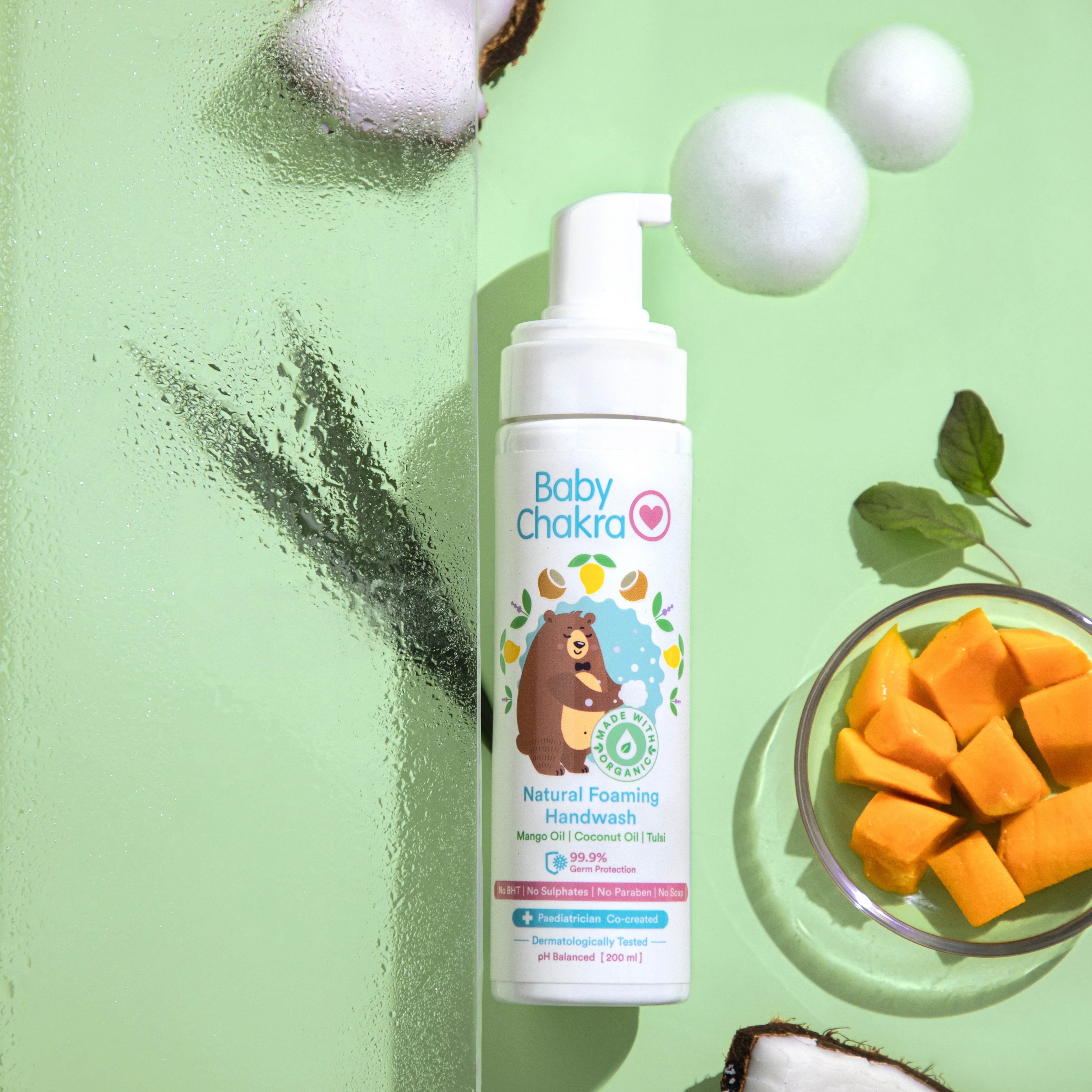
Why It’s Never Too Early To Start Teaching Your Child About Personal Hygiene
2 Aug 2022 | 4 min Read
Reema Shah
Author | 740 Articles
Children learn a lot in their early years, by the time they turn three, their brain is twice as active as an adult’s. As they’re growing up, they are inquisitive, they love to touch and feel things and interact and share toys with others.
All these activities can easily transmit germs and hence it’s never too early to start teaching your child about personal hygiene. Here we bring you the five reasons for teaching your toddler about hygiene.
5 Benefits Of Teaching Your Toddler About Hygiene
1. Promotes Self-Confidence and Independence
Learning new skills help young children to gain self-confidence. Thus when it comes to personal hygiene, such as hand washing, children can master the skill from a very young age with some help. Parents can demonstrate the right way for washing hands to their children and educate them on the importance of handwashing.
You can put up a visual chart to show the handwashing steps. This way, your little one will remember what action comes next. You can also teach them the steps through songs and rhymes. Don’t forget to be consistent while you’re teaching them so that they follow the habit before eating, after using the toilet, after playing outdoors or after sneezing and coughing. It will become a part of their routine eventually.
2. Helps in Personal Grooming
Early hygiene education can help your child be aware of proper grooming and make children feel confident in their appearance. It also feels good to look clean and smell fresh. For parents, grooming can also be a special time to show care and attention towards their children. It can include things like cutting nails, combing hair, brushing teeth or polishing shoes.
3. Prevents the Spread of Germs and Diseases
When young children are taught about the importance of personal hygiene, they will be careful about not spreading germs to others. Children spend a lot of time at school or daycare sharing toys and books. Teach your little one how bacteria can spread from one person to another, and why it is important to wash our hands to keep bacteria at bay.
Another important thing that you must teach as a parent is for them to cover their mouth with a handkerchief or cough into their elbow to avoid spreading germs. Children should also learn the importance of oral health.

4. Social and Emotional Development
When children learn about hygiene and self-care, they can contribute to healthy social and emotional development. Attempting to complete the activities related to self-care and hygiene can help your little one build a strong sense of self, independence, and confidence. A sense of accomplishment can be very powerful when she reaches a self-care milestone on her own. It’s also important to remember that feeling independent and confident are both big components of social skills.
Children who are not able to comply with hygiene practices can face a lot of limitations when it comes to social experiences later in life. They may not be able to handle tasks on their own in future and hence not want to go to social gatherings. Hence, learning self-care tasks early can help your little one build the foundation for self-awareness and positive social connections.
5. Developmental Benefits
Every self-care task has amazing developmental benefits. When your toddler learns how to hold a toothbrush properly, he or she is learning to exercise fine motor skills. Your child’s gross motor skills are developing when he or she is able to practise putting on pants without tumbling over.
Self-care lessons also help to build language skills as your little one practices naming each object and each task. He or she also learns the basic concept of sequences like washing hands before eating food or the steps that happen during brushing teeth.
Teaching personal hygiene to children right from an early age is important rather than treating it as a choice. Hygiene becomes a part of their lifestyle.
A


Suggestions offered by doctors on BabyChakra are of advisory nature i.e., for educational and informational purposes only. Content posted on, created for, or compiled by BabyChakra is not intended or designed to replace your doctor's independent judgment about any symptom, condition, or the appropriateness or risks of a procedure or treatment for a given person.

